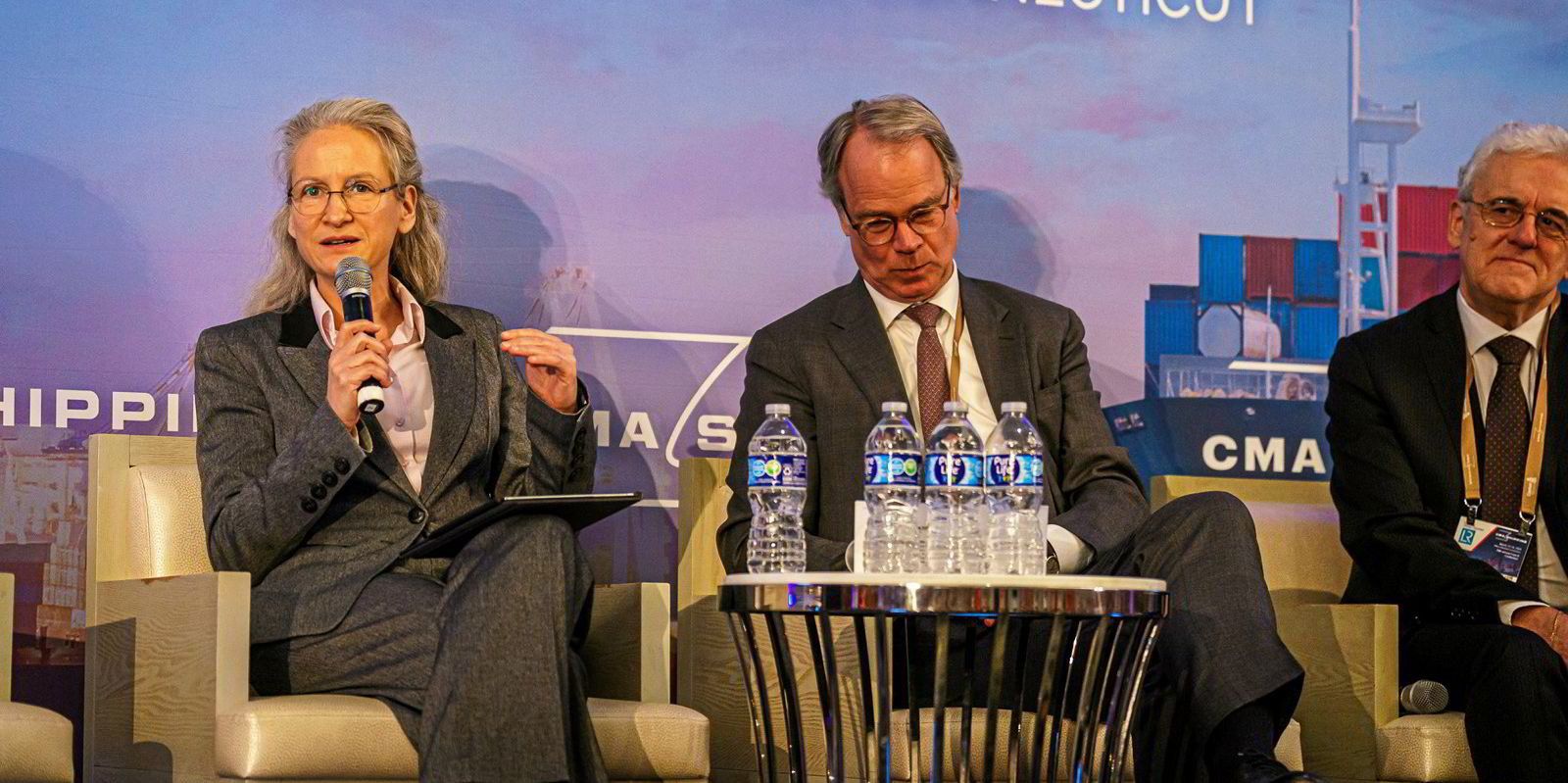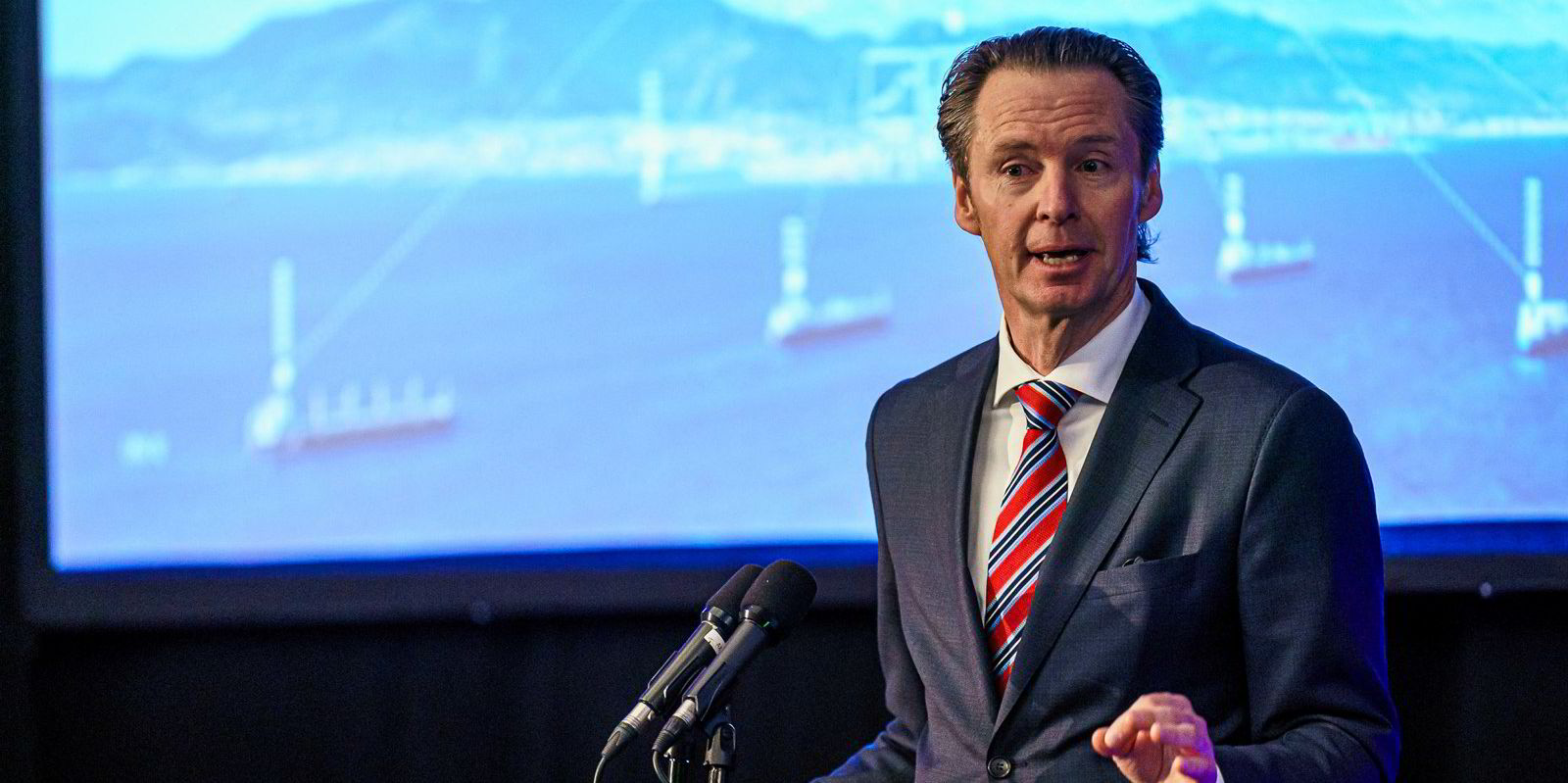The head of shipowners group Bimco has urged the International Maritime Organization to take strides toward adopting a global fuel standard next year.
The proposed regulation, which would put gradually tightening limits on the carbon intensity of fuels, is being discussed alongside a carbon price as the IMO aims to adopt measures to turn its 2050 net-zero goal into a reality.
David Loosley, Bimco’s secretary general and chief executive, told the Connecticut Maritime Association’s Shipping 2024 conference that the fuel standard is a central element of decarbonising shipping.

“Such a measure will become the backbone of shipping’s decarbonisation efforts and set the mandatory minimum pace, which will also provide the all-important investable pathway stretching decades into the future,” he said.
“The fuel standard must be global, internationally certified and ready for adoption in 2025. There is no doubt that the mandatory global fuel standard will significantly cut industry emissions.”
Loosley was speaking ahead of next week’s Marine Environment Protection Committee meeting, one of two planned for this year before the scheduled adoption of the measures in 2025.
He said Bimco wants clarity and progress towards adoption of both the technical and economic measures under consideration at the committee.
The fuel standard tends to get less attention in shipping’s decarbonisation debate than regulations that would put a price on carbon, known in IMO jargon as the economic measure and subject to several proposals including a carbon levy.
And though he focused on centrality of the fuel standard, Loosley did not play down the importance of putting a price on carbon.

“We also need an economic measure to close the price gap between traditional and green fuels,” he said, citing a United Nations report putting a $28bn price tag on reaching the goal of net-zero greenhouse gas emissions by 2050 but suggesting it could be higher.
“Because decarbonising shipping, and this is no surprise, comes at substantial costs.”
The IMO’s greenhouse gas strategy, adopted last year, includes checkpoints aiming for 20% to 30% cuts in 2030, and reductions of 70% to 80% in 2040, relative to 2008 levels.
In a panel discussion aiming to forecast what shipping might look like in 2040, Intertanko managing director Katharina Stanzel said that the 2030 targets might be reachable with operational measures.
But Stanzel said that alone will not reach the 70% cut in 2040.
“We need zero-carbon fuels. Otherwise, it’s not achieved,” Stanzel said on the sidelines of Shipping 2024.
On stage, she compared the fuel outlook for tankers to the “range anxiety” facing drivers of electric taxis in London. When they pick up a passenger, they do not know whether they will find a charging station at the other end of the journey.
“And I think for tankers at the moment, looking forward to 2040, that is one big unknown,” she said.
“That’s something that their crystal ball can’t answer, because we’re not the ones producing the fuels. We don’t know where in the world they will be produced. We’re not the ones driving that technology development choice, like the infrastructure development choice.”
She said the IMO’s fuel-agnostic approach means it is working on multiple parallel paths, which takes time.

Knut Orbeck-Nilssen, the chief executive of the maritime division of classification society DNV, told TradeWinds that a fuel standard will have to put parameters on the definition of green when it comes to green fuels.
“There are many shades of grey, and there might be many shades of green,” he said.
Orbeck-Nilssen also said a “fuel passport” may be needed to validate that a fuel actually meets the fuel standard.



